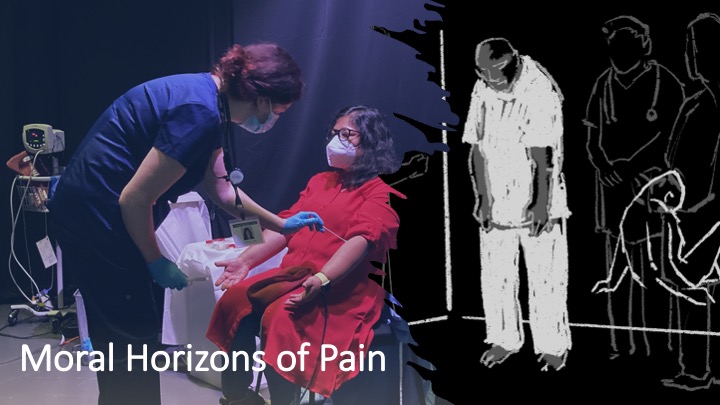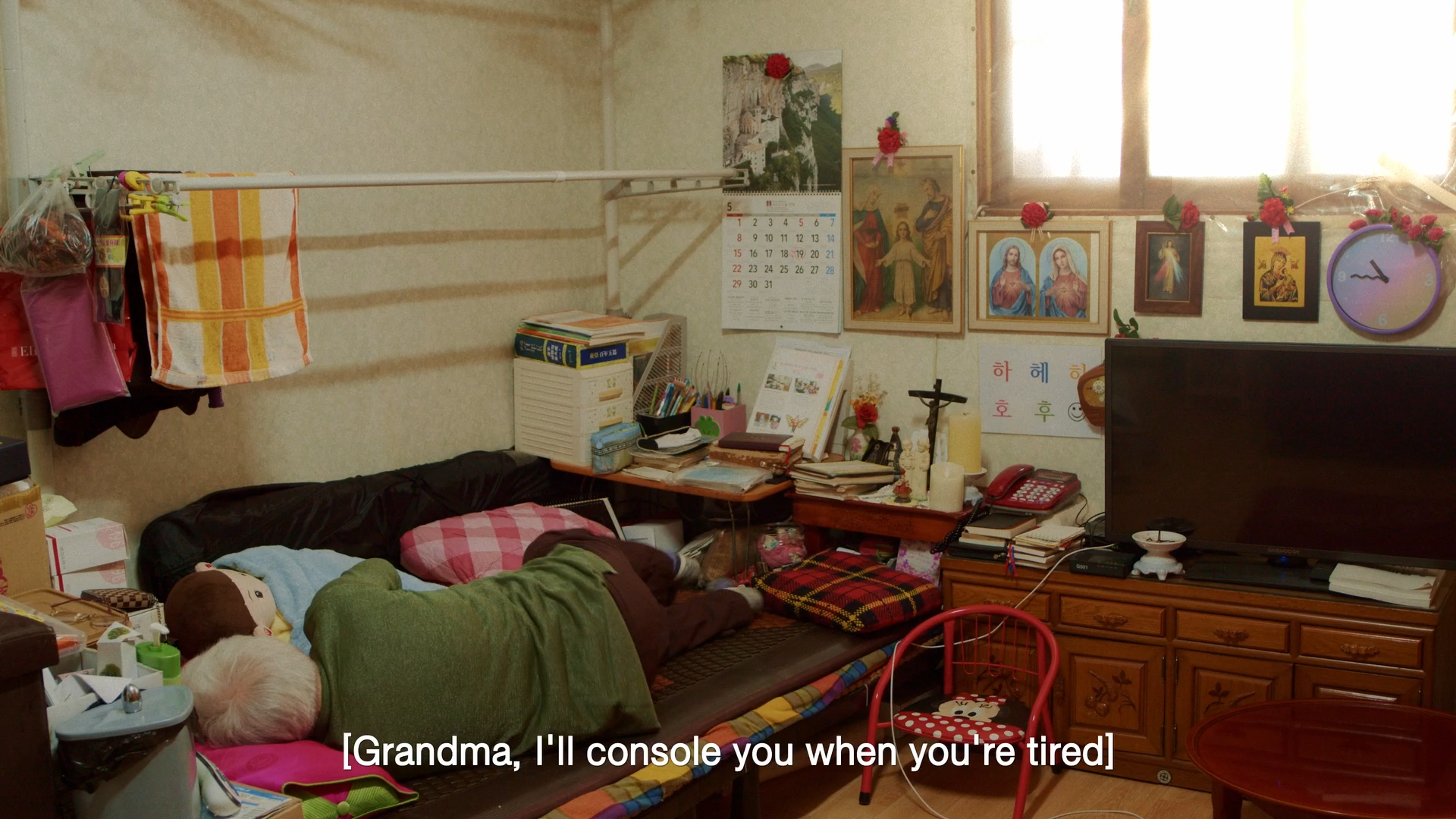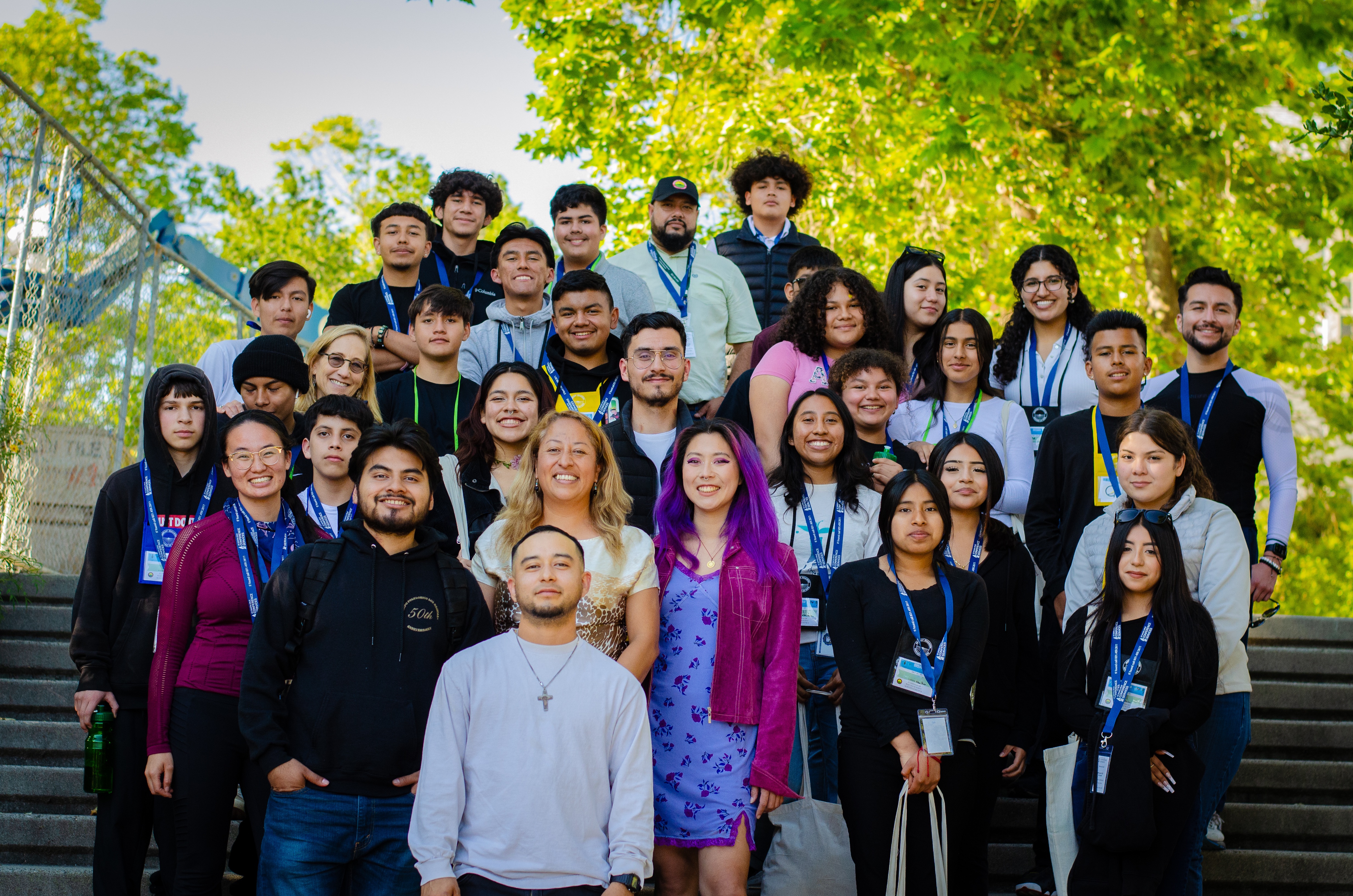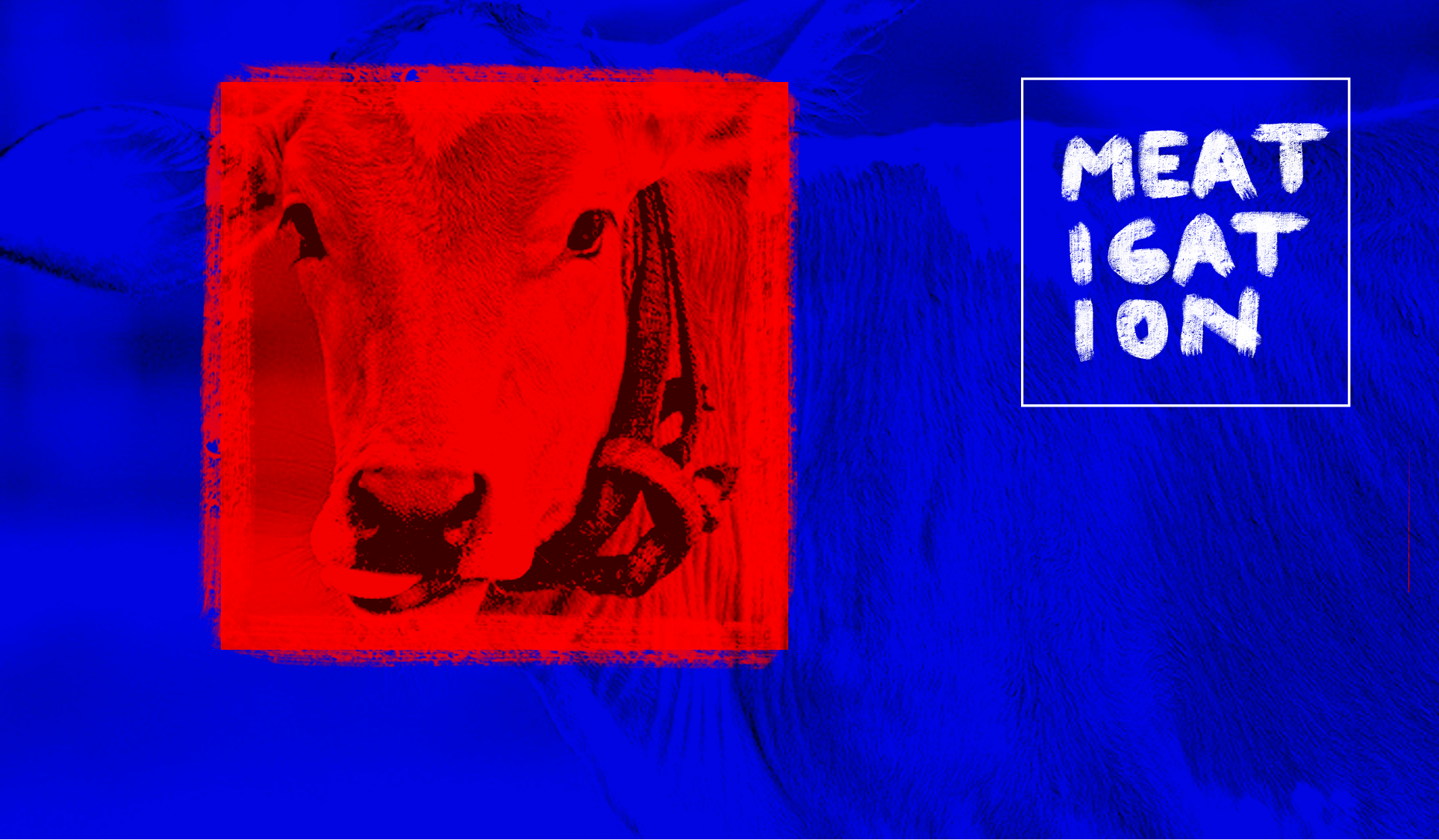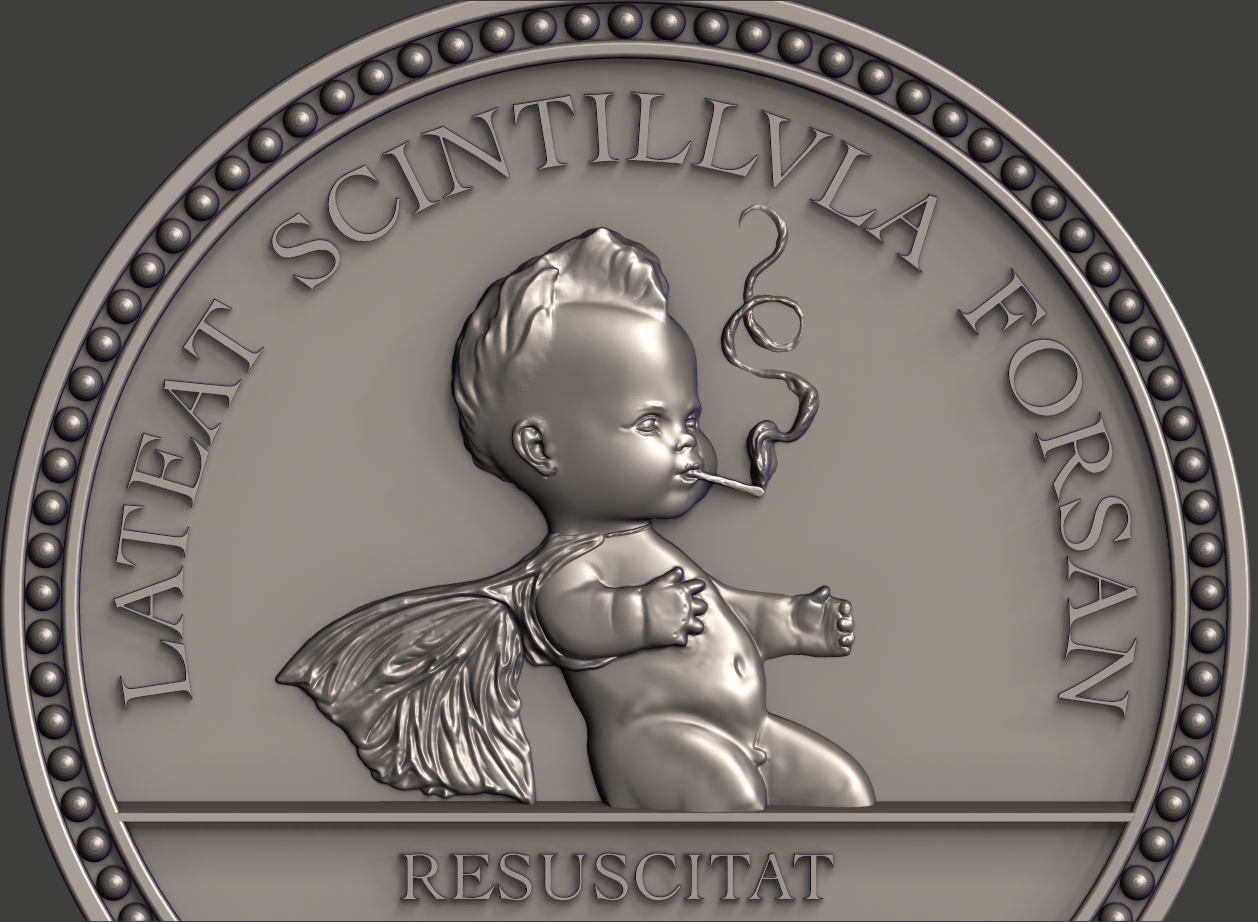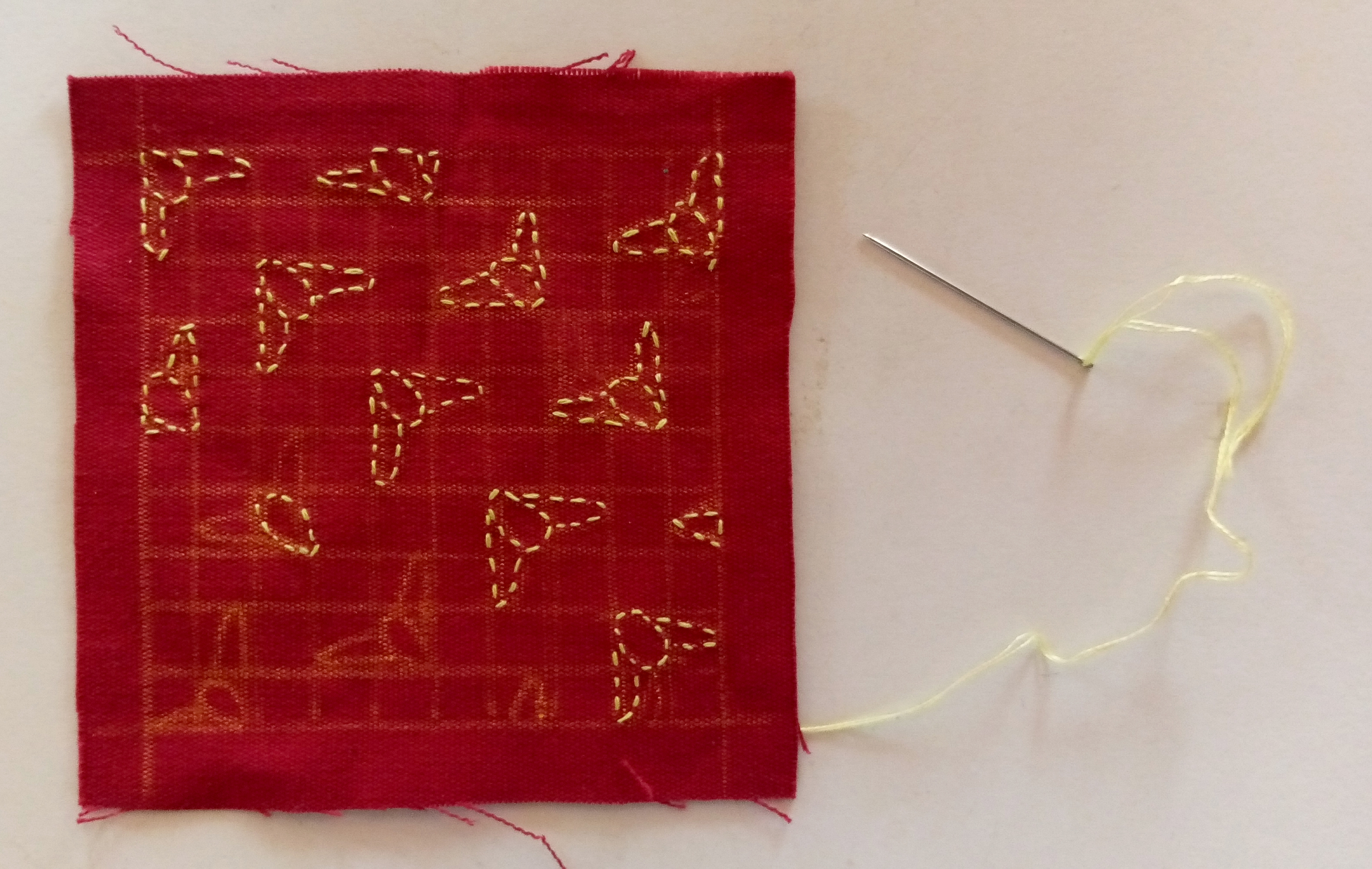
STS Making and Doing Awards 2023
Making & Doing Awards:
Empathy and Action: Post-Apocalyptic Coalfield Appalachian Grief and Salvage
Crystal Cook Marshall
The creators of this extraordinary installation and performance established an authentic space to grieve within the Making and Doing session, inviting attendees to sit with and, if they chose, to smash pieces of coal while hearing histories of places and people destroyed in equal parts by coal mines and apathy. Crystal Cook Marshall, as the piece’s disconcertingly matter-of-fact host, insisted on a deeply personal perspective on the ravaged and forgotten Appalachian town that was once her home, now also an object of her research, giving us a premonition of what it’s like to realize that nobody is coming. Unapologetically dwelling in grief and rage, Empathy and Action invites us to contemplate the towns and people left behind in the wake of industry, to glean a post-apocalyptic future through the canaries in the coal mines of past and ongoing apocalypses.
Moral Horizons of Pain: A Participatory Theatrical Installation
Ariel Ducey, Pratim Sengupta, Martina Kelly, Santanu Dutta, Erin Knox, Megha Sanyal
This interdisciplinary team from the University of Calgary explored the moral and human dimensions of pain, aiming to make sensible aspects of pain experience that fall through the cracks of standard biomedical reporting procedures and pain management protocols. As a multi-layered, participatory theatrical installation, the project invited attendees to move through a series of situations to explore routines and rituals of pain, its description and its management. Attendees were transformed into compliant patients in an immersive reenactment of a clinical intake process; they were guided to play with pain categories of manipulable granularities dancing across a screen, thereby telling different stories about what is being experienced; they meditated on ineffable, relational and situated meanings of pain as they unfolded through a richly drawn and narrated animated film. Against models of interdisciplinary where each field has its own terrain and role in a project, these authors (from across disciplines of Sociology, Medicine, and Education) ‘leaned in’ to risky, experimental modes conceived together. This project began in response to reductive discussions of pain at biomedical conferences; the Committee hopes that this powerful installation will return to biomedical spaces (as well as travel elsewhere!) to share these provocative ways for thinking and feeling differently about pain.
A Film Screening of Hug Me Tight: A Robot Documentary
Heesun Shin and Jeon Chihyung
The documentary Hug Me Tight was selected as an exemplar of film as a mode of STS research and knowledge mobilization. Through its critical reflection and masterful filmmaking, Hug Me Tight elicits narratives of care, automation, and time in South Korea. With a deep attention to detail, it follows how robotic care is achieved by the company staff who design and manufacture Hyodol, a stuffed doll with electronic sensors and communication modules that can greet the elderly. The screening experience at 4S was particularly compelling, sparking discussions about co-presence in the digital zeitgeist.
Film still from Hug Me Tight: A Robot Documentary
Honorable Mentions:
BioJam camp: bioengineering justice through art, culture and creativity with youth
Anastacia Del Rio, Callie R. Chappell, Corinne Okada Takara, Adrian Salazar-Huazo, Jose Luis Hernandez Pizano, MaríaJosé A-C., José S., Anthony P., and Yuri C-L.
BioJam–a decolonial bioengineering summer camp that brings together children of color, academics, and artists in the Bay Area–is a project about honoring connections between people and place as much as it is about biodesign. These commitments were all the more impressive as this team brought BioJam to Honolulu. They actively worked with communities in Hawaii prior to and after 4S, connecting with a local school to share the mini-hydroponic gardens (using indigenous Hawaiian seeds) that participants created in the session, displaying on multiple levels tangible methods of displacing dominant scientific cultures. Their careful consideration of place, their centering of youth voices, and their decolonial praxis resonated particularly well with this year’s 4S theme, and is certainly deserving of special recognition.
BioJam Camp 2023, during an overnight trip to University of California at Santa Cruz
Facing MEAT
Sophia Efstathiou
Beginning with a layered lecture-performance that presents and comments on Efstathiou’s collaborative project about how to get the public to eat less meat, this workshop induced an exuberant reflexivity about how to perform our scholarship. Drag appears in this project as both an analogy (meat substitutes as meat in drag), an aesthetic, and a method. Efstathiou, wearing a gauzy red gown that appears to be covered in burger patty patches, stitches Drag to her concept of Found Science, which describes how scientists pick up (put on?), adopt and adapt objects, concepts, and genres across domain boundaries. Workshop participants are finally invited to draft and set words about their own projects to a techno-beat provided by Efstathiou’s collaborators, Girls on Speed, granting participants our own Found STS ready-mades. Facing MEAT is a workshop that first enacts, then extends the potential of performance and play for engaging with sticky problems STS scholars find ourselves working with.
Meatigation
An Apocrypha of Drowning: Four Medals on the History of Drowning
Lochlann Jain
This gorgeous project on the history of drowning and resuscitation technologies engages historical materials by crafting bronze medals to recombine and reimagine symbols, stories and slogans from discourses of drowning, thereby surfacing its tensions and paradoxes. Lochlann Jain’s rich and extensive archival work asks how knowledge about drowning circulated through modes of fascination and commemoration, and in relation to notions of life, death and spectatorship. Jain’s humorous, uncanny medal designs also attend to the project’s own role in circulating knowledge across the sensible, sensual and speculative. Casting in bronze forgotten threads and contradictions by which drowning and resuscitation came to hold together words, world, actions, values, and social roles, this experimental STS project is noteworthy for its reliance on a different kind of STS argumentation, one that asks us not to evaluate and solve, but to enter, linger and think-with.
Lest Some Spark Remain
Unraveling the crisis with more-than-human nature
Carmen Gómez-Vega
As a gesture of collective memory-making, Gómez-Vega’s project invites us to meditate on the both fragile and robust relations that sustain us in times of enduring crises. Gathered at a communal table replete with cloth squares and spools of colorful thread, participants shared their experiences with more-than-human entities during the covid-19 pandemic, from plants to pets, and rendered these figures into delicate stitch-work. This project is an ongoing meditation on the collective handiwork of textile practice with communities in Dapa, Colombia. Gómez-Vega asks us to gather our threads together as a reflection on those more-than-human relations that bind us — to a shifting sense of normalcy, to spatiotemporal boundaries, to each other — and, in doing so, mobilizes our patchwork memories through forms of communal care and situated meaning-making at the heart of feminist STS.
Flies in Dapa (Colombia) during the covid-19 pandemic (2021) by Carmen Gómez-Vega
2023 M&D Awards Committee
Christina Aushana, Yelena Gluzman, Sarah Klein, Rebecca Monteleone, Leandro Rodriguez Medina, Zheng (Vincent) Li, Martín Pérez Comisso, Mircea Sava, Hannah Star Rogers, and Kathryn Vignone.

